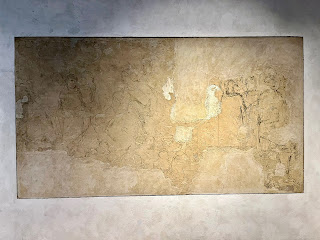What Went Wrong and Why: Lessons from AI Research and Applications
AAAI-08 Workshop on
What Went Wrong and Why: Lessons from AI Research and Applications
CALL FOR PAPERS
Submissions due: April 7th, 2008
Unfortunately, bugs, glitches, and failures are rarely mentioned in academic discourse. Their role in informing design and development is essentially lost. The first What Went Wrong and Why workshop during the 2006 AAAI spring symposium [1,2] started to address this gap by inviting AI researchers and system developers to discuss their most revealing bugs, and relate problems to lessons learned. Revised versions of the articles and the invited talks will be published as a special issue of the AI-Magazine in Summer 2008 [3].
The first workshop clarified that WWWW experiences can be studied at three different levels of abstraction: the Strategic (AI research in general), Tactical (research area) and Execution (project or implementation) levels. An additional category turned out to be the study of how, why and when failures occur in the first place.
As such, we invite researchers to submit papers (8 pages in AAAI format) connecting problems they have encountered to lessons learned on the tactical or execution level. We would also welcome papers on the study of failures themselves. We encourage authors to elaborate on what they believe was the source cause of the failure, how the problem helped them arrive at a better solution, and to suggest a broader categorization of failures and how to utilize them. Papers should be submitted to submission@whatwentwrongandwhy.org
Important Dates
* Submissions Due: April 7, 2008
* Notifications: April 21, 2008
* Final Papers Due: May 5, 2008
* Workshop: July 13 or 14, 2008 (TBA) in Chicago at AAAI 2008
Chairs: Mehmet H. Göker and Daniel Shapiro
Mehmet H. Göker, PricewaterhouseCoopers, CAR, (mehmet.goker@us.pwc.com)
Daniel Shapiro, CSLI/Stanford University, & Applied Reactivity, Inc. (dgs@stanford.edu)
Program Committee
References:
[1] Shapiro, D., Göker, M. (eds.), 'What Went Wrong and Why: Lessons From AI Research and Applications', Papers from the AAAI Spring Symposium, March 27-29, 2006, Stanford, CA. Technical Report SS-06-08, AAAI Press, Menlo Park, 2006.
[2] A. Abdecker, R. Alami, C Baral, T. Bickmore, E. Durfee, T. Fong, M. Göker, N. Green, M. Liberman, C. Lebiere, J. Martin, G. Mentzas, D. Musliner, N. Nicolov, I. Nourbakhsh, F. Salvetti, D. Shapiro, D. Schreckenghost, A. Sheth, L. Stojanovic, V. SunSpiral, R. Wray, "AAAI Spring Symposium Reports" , AI Magazine, VOl 27, Nr. 3, Fall 2006, pp. 107-112, American Association for Artificial Intelligence (AAAI), Menlo Park, 2006
[3] Shapiro, D. Göker, M. (eds.), 'Special Issue on What Went Wrong and Why", AI Magazine, Vol. 29, Number 2, Summer 2008 (to appear)





Comments
Post a Comment